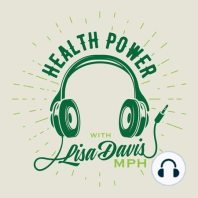10 min listen
Tapering Off Prescription Opioids: 7 Tips for Success
From"Health Power
ratings:
Length:
10 minutes
Released:
Jun 29, 2016
Format:
Podcast episode
Description
Opioid withdrawal is highly unpleasant, and for some people it feels intolerable.If you take prescription opioids, you may have experienced withdrawal symptoms at some point; perhaps when you forgot to take a scheduled dose of medication. Opioid withdrawal is highly unpleasant, and for some people it feels intolerable. Symptoms can include anxiety, pain, shakiness, nausea, achiness. If you experience withdrawal symptoms, this does not meant that you cannot get off opioids. Withdrawal symptoms mean that your opioid level was dropped too quickly and your body was surprised by the lack of medication. The key is to work with your body to successfully taper your opioids by making small changes slowly over time.Beth Darnall, PhD, author of Less Pain Fewer Pills; Avoid the Dangers of Prescription Opioids and Gain Control Over Chronic Pain, joins Andrea and Lisa to share her seven steps for successfully weaning yourself off prescription opioids.1. Talk with your doctor. Always talk to your prescribing doctor before making medication changes. This is the first step in any opioid tapering program. Most doctors are happy to help their patients reduce their medications.2. Timing is everything. Plan to start your taper when life is relatively calm. Avoid the holidays or times when work or family stress are particularly high. Remember that you want to set yourself up for success. Since stress creates challenges and worsens pain, you want to start your taper when you are least likely to be challenged with pain.3. Opioids should be your only medication change during the taper. Many people fall into the trap of trying to change more than one medication at a time. They decide they will taper opioids, start an antidepressant, and go off their sleeping med all in the same month. This is a setup for failure. Think of your taper as an experiment. Then, when things are calm and you are clear about the result from that change, you can consider making changes to the next medication.4. Go S-L-O-W: The turtle wins this race. Some doctors will suggest a quick taper of 1–2 weeks. Just because you can doesn’t mean you should. By tapering slowly, you can prevent symptoms of withdrawal, stress, and anxiety. Going slow is especially important if you have anxiety, such as panic attacks, post-traumatic stress disorder, or generalized anxiety. Ask your doctor to make small reductions (decrements) in your opioid dose about every two weeks. Even if you feel good, stay on a slow taper schedule and make it easy for your body. 5. Use your mind-body skills. Optimize success with opioid tapering by focusing on calming your mind and body regularly throughout each day. Calming your mind and body needs to be your main priority during the taper period. 6. Watch your choices. Resist the temptation to make many life changes during your opioid taper. If you decide to taper opioids, keep the rest of your life at a constant. If you are already walking twice weekly for 30 minutes, stay with that if it is working for you. You can ramp up your activity level or make other changes once you are through with your taper. 7. Get extra support. Your medical or psychological circumstances may require more structure and support. If your doctor recommends additional support, or if you are running into problems, consider working with a medical professional who can closely supervise your taper.
Released:
Jun 29, 2016
Format:
Podcast episode
Titles in the series (100)
Shift Your Consciousness to Create a More Peaceful Holiday Season by "Health Power
